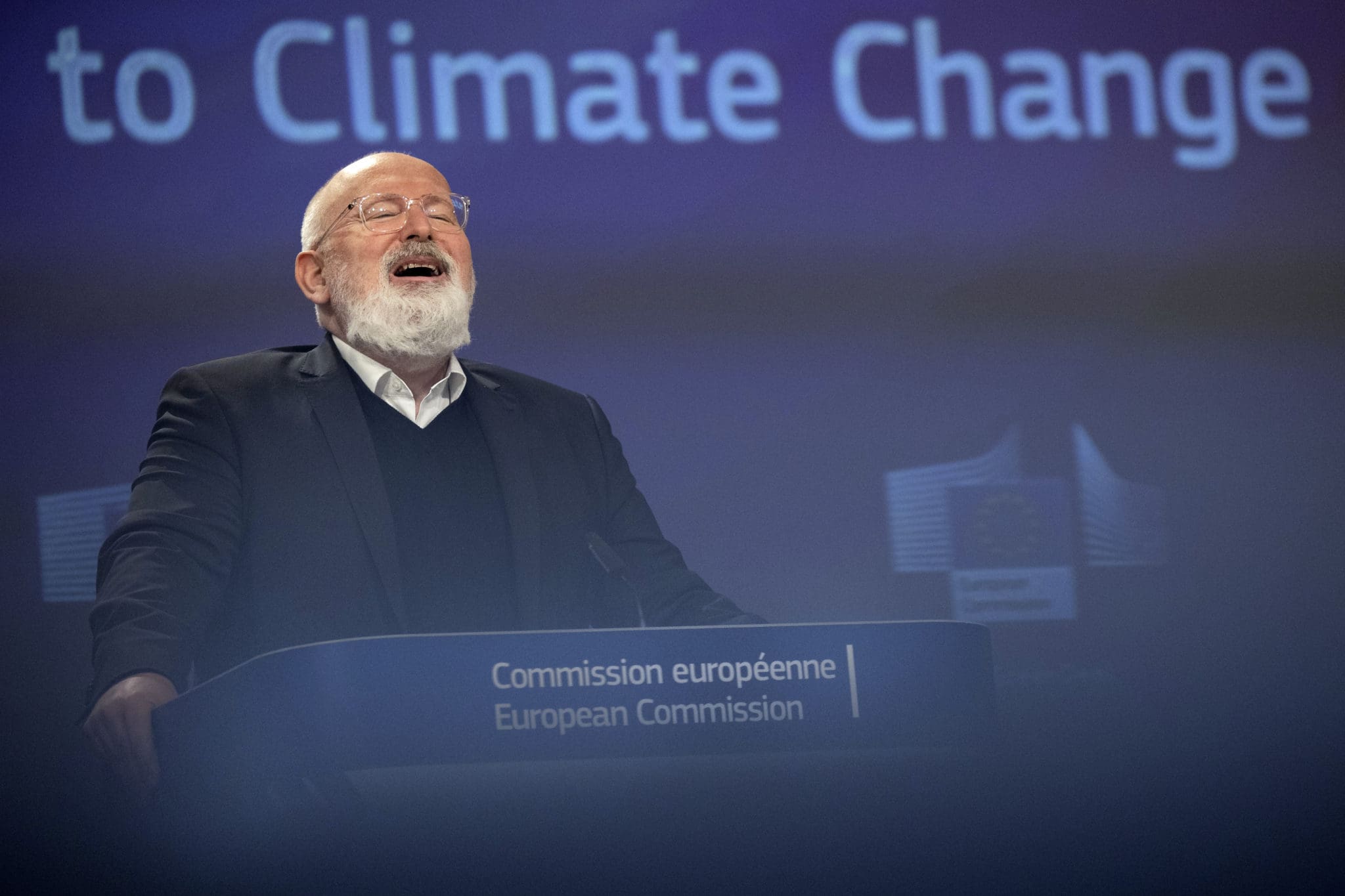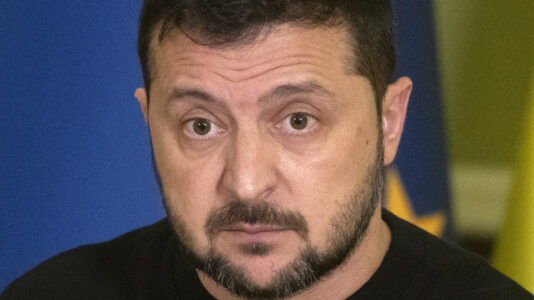Commentary taken from Robert Bogdansky’s podcast “Coistotne” via Salon24.
The climate around climate change is changing. Just a few months ago, stating that achieving so-called climate neutrality by European countries is not only utopian but also devoid of economic sense would place the speaker in the group of dangerous populists Just a few months ago, this speaker would be considered not all that far fascism and someone who could only be reasoned with while on trial in a court of law.
And today? Czech Prime Minister Petr Fiala said at the last climate conference in Baku that “climate goals” are contrary to the development of the European economy and threaten the prosperity of the inhabitants of the continent. One of the most famous German economists, Hans-Werner Sinn, stated in a recent interview that achieving zero emissions by Germany is a “utopian” goal that can only be achieved at the cost of deindustrialization. He called the regulations issued to achieve this utopia “trash.” And what? And nothing. Sinn is still an authority for Germans. The Greens will probably attack him, but their time is running out.
Fears of climate change are giving way to more real fears of war, high prices, and uncontrolled immigration. The German Politbarometer from November shows that while a year ago climate issues were unquestionably at the top of the list of “German fears,” regularly reaching 50 percent of indications, concern about the planet today has dropped below 20 percent; its place has been taken by immigration, while the economic situation is second, causing concern for 30 percent of Germans.
Why am I writing about the views of Germans in the context of zero emissions and advice for Poland’s candidate for president, Karol Nawrocki? It’s simple. The parliamentary elections in this country will be held in less than three months. The AfD will certainly support limiting “climate ambitions,” and if so, the CDU, which has been trying to take over the most popular elements of the AfD program for some time, will also have to do something about it. The Christian Democrats will certainly not be as radical, but they will go in that direction. The Greens will definitely oppose them, but the SPD will think twice. They will probably avoid presenting any clear stance, in Scholz’s style.
The effect will be that the departure from climate radicalism will resonate strongly in public perception. Anyone who does not understand this will lose the election. It will be a bit like with Kamala Harris, who wanted to win on pro-abortion slogans, but did not notice that in the last stretch of the campaign, voters considered illegal immigration and inflation to be more important. And these issues were Trump’s domain.
As a result, it is more than likely that in the country setting the tone for EU discussions, a discourse opposing radicalism under the banner of “zero emissions” will appear during the campaign.
And this is our chance! Candidates to the right of the current government should jump on this rising wave and try to sail on it. They will be able to do so without fear of being accused of being extreme because the wave will come from the most unexpected direction — from Germany. Can anyone accuse candidates who say similar things in principle to the German mainstream candidates, who by definition cannot be wrong and by definition cannot be fascists, of fascism and populism? In this way, the discourse on the need to move away from “ambitious climate goals” has a chance of being accepted in Poland, and not only in circles that are labeled “extreme.”
The mechanism of this process will be simple. The Konfederacja candidate is already in favor of moving away from climate radicalism. But Sławomir Mentzen is sitting in the ghetto of “extremists,” so he should not be taken into account. The key will be Karol Nawrocki’s decision. If he decides to follow a strong narrative opposing the forced zero-emissions approach, and at the same time is able to balance it well with a pro-ecological approach, then the candidates of the currently ruling groups will find themselves in a difficult situation because such a position has growing public support.
People see rising bills, energy prices, economic problems, and do not want to have wind turbines in their neighborhood, and at the same time, they see the need to protect the environment and consider reasonable reduction of emissions as positive.
According to CBOS research, public support for zero-emissions has fallen from 48 percent in 2021 to 25 percent currently, while support for the “Polish path to zero-emissions” (read: let them not impose anything on us and we will reach zero emissions at our own pace) currently stands at 68 percent.
What will the candidates associated with the currently ruling coalition do? Szymon Hołownia will probably enthusiastically repeat the thesis of Henning-Kloski that when the Polish sun shines, the Polish wind does not blow and vice versa, but he is a political corpse, he just does not know it yet, and on the Gaussian curve he will be on the opposite side to Mentzen.

RELATED: ‘The deindustrialization of our country’ – Germany’s energy policy is crushing business
Rafał Trzaskowski, on the other hand, will have a tough nut to crack. He will be able to convert at the last moment to “anticlimacticism,” as Bronisław Komorowski did, suddenly supporting single-member constituencies in the second round, but the credibility of such a maneuver is usually low. It will be better to try to carefully connect to the emerging mainstream discourse, so as not to be left out if necessary. Such an approach fits his personality very well and the general style of the Civic Platform’s politics.
Since Nawrocki and Trzaskowski will most likely face off in the second round, such an evolution of views may lead to a situation where, regardless of who wins, the president of the Republic of Poland will present the view that the climate goal of achieving a zero-emission economy in the foreseeable future should be revised. Thanks to this, Poland will have a chance to participate in shaping a new climate consensus in the European Union and stimulating discussion towards limiting unnecessary radicalism.
Of course, the credibility of individual candidates is a separate issue. As for Trzaskowski, I have no illusions: He will abandon his views as soon as it turns out that Ursula von der Leyen puts her foot down. What will Nawrocki do? He is a new man in politics, so it is difficult to judge based on his past actions. One thing is certain: He will want to stay for a second term. And if so, he will not want to make disastrous ideological U-turns. He will rather take care to shape the views of voters through discussions and educational activities. Besides, this is the most fruitful field of action for the president of the Republic of Poland.
The development of events outlined above depends on the decision of Karol Nawrocki and his entourage. If he does not take such a risk, then the topic will remain on the margins of the electoral discourse, left to people like Mentzen or Jakubiak, who will be easily labeled as extreme by the mainstream. Trzaskowski himself will not take up the topic unless he is forced to do so by circumstances. Why would he give up his pleasant position as the favorite of Western salons?
Is the game worth it? In my opinion, definitely yes, because the decomposition of the “ambitious” climate policy of the European Union is only a matter of time and without real pressure from the member states, it will be done on terms dictated by the EU bureaucracy. This is one of those rare moments when the candidate for Polish president can take part in shaping the policy of the entire bloc. It is worth not missing it.






